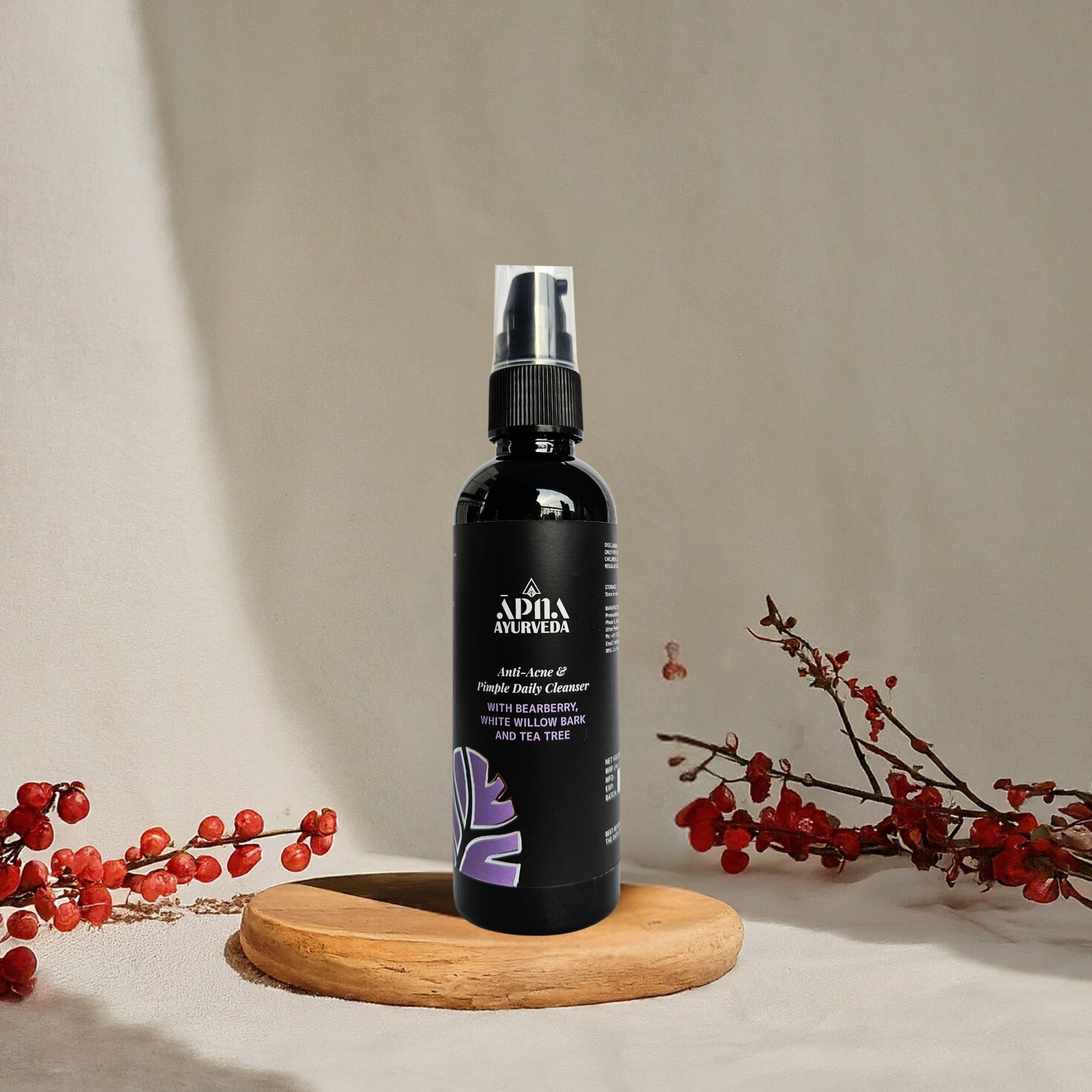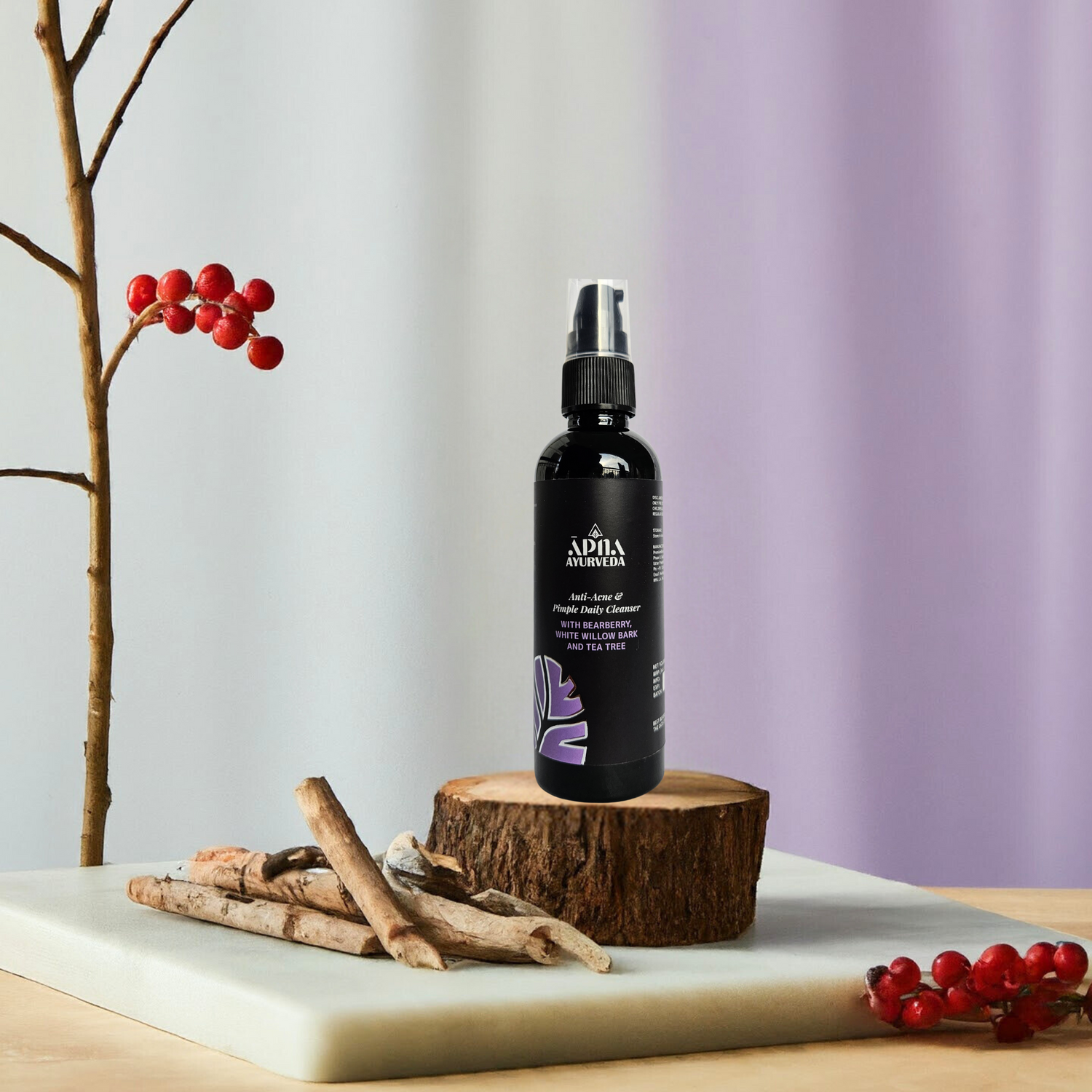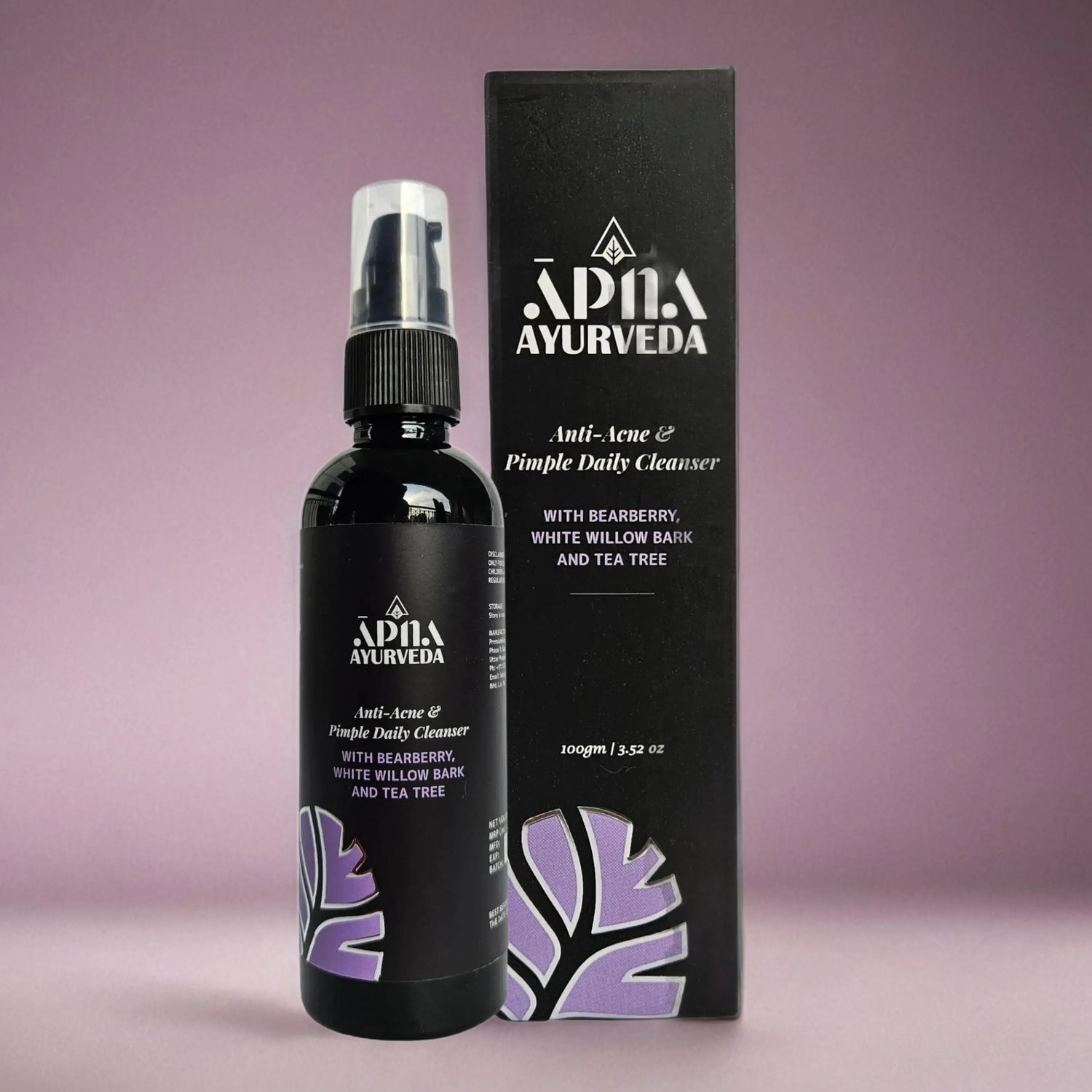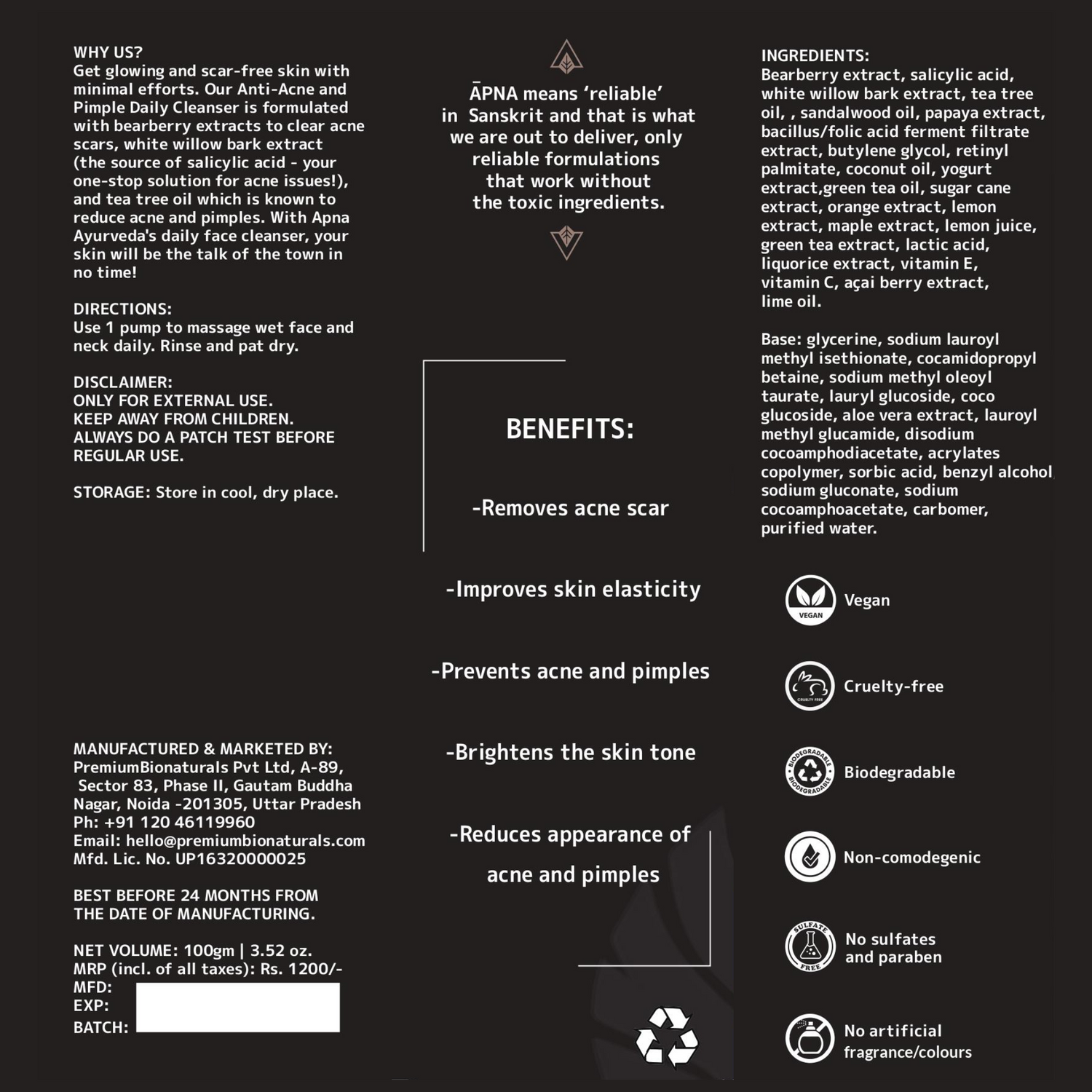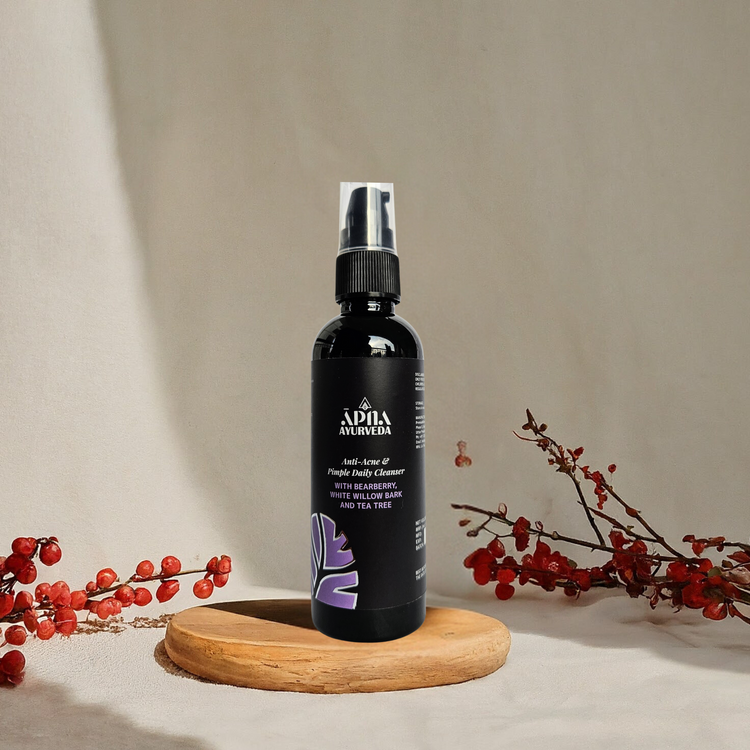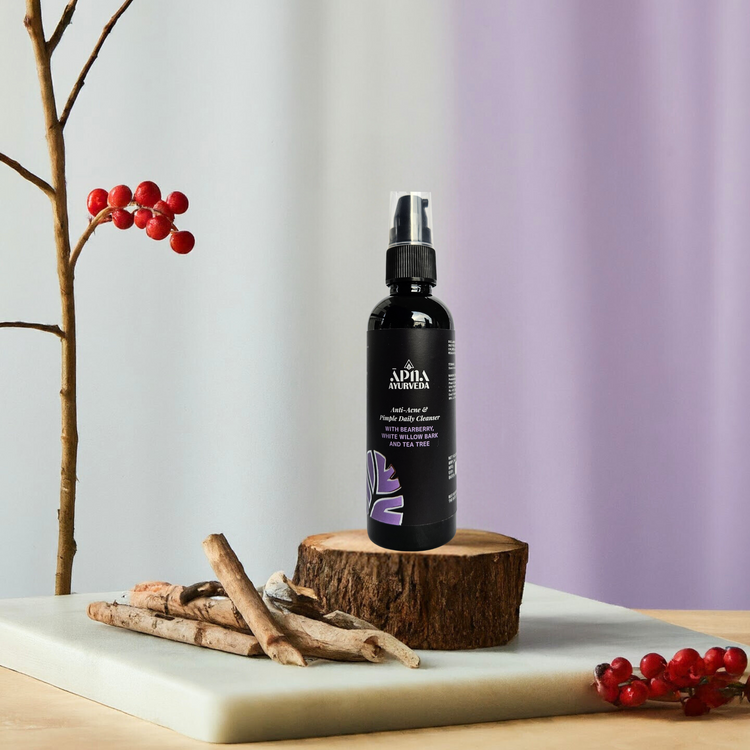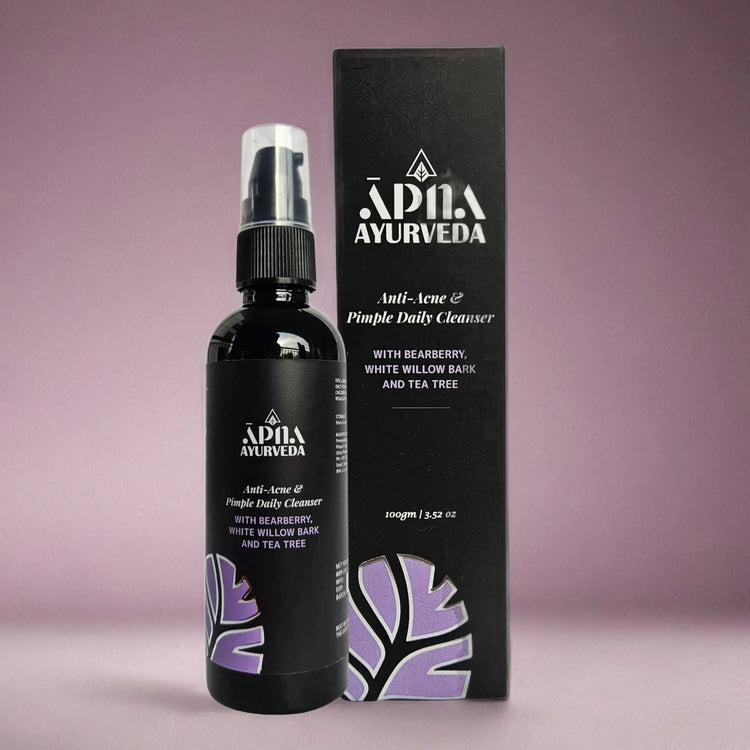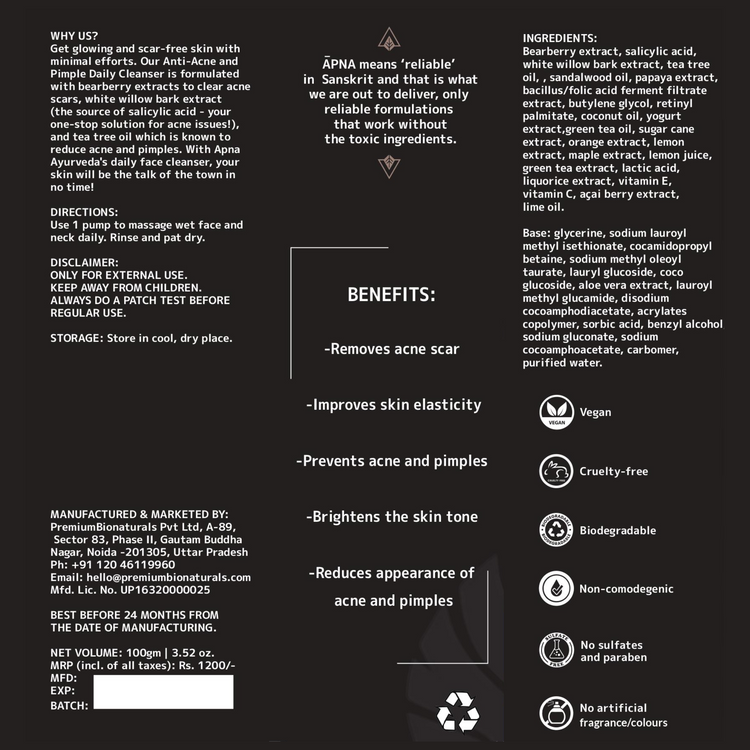If you grew up with acne, you’ve probably heard every piece of advice under the sun. "You eat too much pizza!" "Wash your face more!" "Stop touching your face!" The endless (and often ridiculous) tips about avoiding acne are enough to make anyone's head spin. Clogged pores, oily skin, and breakouts seem like a universal rite of passage, but let’s be real—half the things we’ve been told are more fiction than fact. Aren’t you tired hearing chocolate causes acne? Or that scrubbing your face like it’s a dirty dish will get rid of pimples? We share your pain.
Acne is a real pain but what’s more difficult is when you are bombarded with wrong information and are unable to choose what’s right and wrong for you. We will help you figure out the rights and the wrongs, let’s debunk some of the most common acne myths. Whether you’re dealing with popped pimples, tackling inflammatory acne, or just trying to get the facts straight, we’ve got your back.
What are the types of acne?
There are several types of acne, including:
- Fungal acne: Fungal acne occurs when yeast builds up in your hair follicles. These can be itchy and inflamed.
- Cystic acne: Cystic acne causes deep, pus-filled pimples and nodules. These can cause scars.
- Hormonal acne: Hormonal acne affects adults who have an overproduction of sebum that clogs their pores.
- Nodular acne: Nodular acne is a severe form of acne that causes pimples on the surface of your skin, and tender, nodular lumps under your skin.
Myth 1: Only Teenagers Get Acne
Acne is the most common skin concern and people of all ages get acne. Adults can get acne too.
- For most of us, acne loves to crash the puberty party, but it can hang around into adulthood, where it’s lovingly known as “persistent acne.” Yay, right?
- Stressed out in your 30s or 40s? Surprise! Acne can show up to the stress party too, thanks to lifestyle factors and hectic schedules.
- Some people don’t even deal with acne until after age 25—talk about fashionably late! This is called late-onset acne, though it’s less common.
Hormonal imbalance and lifestyle diseases like PCOD and PCOS contribute to cystic acne which can be painful and difficult to deal with. Whether you are 20, 35, or even 40, you stand the risk of getting acne. Acne doesn’t stop at your teens. Keep up with your skincare routine, and remember, you can get acne at any age.
Myth 2: Popping Pimples Makes Them Heal Faster
Raise your hands if you’ve ever popped a pimple and thought it would work out for your skin. We’ll go first. A rookie mistake that many of us are guilty of committing, pimples simply should not be popped no matter how tempted you might be.
- Squeezing the pus or gunk from pimples with your hands or blackhead extractors can harm your skin. It increases the risk of scarring and infection.
- Popping a pimple can lead to inflammatory acne.
- Let the pimple heal naturally, or use spot treatments instead.
Avoid popping! It’s only making acne worse, not better.
Myth 3: Acne Is Caused By Poor Hygiene
Acne is not caused by poor hygiene. Acne develops when hair follicles become clogged with oil and dead skin cells. Many people believe that if you have acne, you're not washing your face enough. But that's not the case.
- Clogged pores and oily skin can occur even with regular cleansing.
- Overwashing can strip your skin of essential oils and worsen breakouts, it can irritate the skin and worsen acne.
- The key is to exfoliate your skin regularly but gently.
Using a gentle cleanser twice a day can maintain skin health without stripping away essential moisture. Cleanliness doesn’t always equal clear skin. Be mindful of how you treat your skin, not just how often you wash it.
Myth 4: All Makeup Causes Breakouts
Not all makeup causes acne. The key is to choose non-comedogenic products that are designed not to clog pores.
- Removing makeup thoroughly before bed and following a proper skincare routine can help prevent breakouts.
- Many cosmetic lines now offer products formulated specifically for acne-prone skin. Non-comedogenic makeup formulas are designed to not clog your pores.
- Heavy, oil-based products can exacerbate acne, but there are plenty of acne-friendly options available.
You don’t have to ditch makeup entirely! Look for non-comedogenic products to keep your skin happy and acne-free. A proper skincare routine can also help to prevent breakouts.
Myth 5: Sun Exposure Helps Clear Acne
Although it may feel like it’s drying your skin, the sun is not helpful in healing acne. The sun can inflame and dry your skin which causes your skin to produce more oil, ultimately making it worse. And what’s worse? The harmful UV rays can destroy your skin beyond repair!
- Sun exposure can worsen inflammatory acne and can cause pain, more redness, and irritation.
- It can also damage your skin, leading to scarring and pigmentation.
- Always use sunscreen, especially non-comedogenic ones, to protect your skin.
The sun might give the illusion of clearer skin at first, but it causes more harm than good in the long run.
Myth 6: Stress Doesn’t Affect Acne
Don't fall for the myth that stress has nothing to do with acne. It turns out that stress can play a big, sneaky role in exacerbating acne breakouts.
- When you're stressed, your body releases a hormone called cortisol. High levels of cortisol can trigger the oil glands in your skin to produce more sebum, the oily substance that can clog pores and lead to acne.
- Managing stress with activities like yoga, meditation, or regular exercise can reduce breakouts.
Stress management is key to maintaining your overall skin health. Less stress equals fewer breakouts.
Myth 7: Pimples Only Appear On The Face
Body acne is a thing and those of you who have ditched the backless dresses and tube tops instead of this would know what we are talking about. Pimples can appear anywhere on the body, not just on the face. Acne is most common on the face, neck, chest, and back because these areas have the highest concentration of oil glands.
- Pimples on the body can appear in the worst of places like your shoulders, chest, back, and even buttocks, making it a living nightmare to deal with.
- Bacne is also trickier to clear out since the layer of skin on our body is thicker in comparison to that on our face.
But don’t worry even celebrities come forward talking about how badly they have been affected by body acne since this might be the most neglected form of acne. However good care and proper medication can do wonders.
Myth 8: You Only Get Acne If You Have Oily Skin
Think acne only targets oily skin? Nope, acne doesn’t discriminate! Sure, people with oily skin might get the brunt of it, but guess what? Dry skin and even sensitive skin can be just as prone to breakouts. How? Blame the buildup of dirt, dead skin cells, and even using the wrong products that clog your pores. Whether your skin is oily or dry, acne can sneak up on you.
The good news? Using the right products can help! Our Anti-Acne Pimple Daily Cleanser with Bearberry, White Willow Bark, and Tea Tree is specially formulated to fight breakouts on all skin types, keeping your skin fresh, clear, and acne-free.
Myth 9: Diet Has No Effect on Acne
Foodies, this one’s for you! We know you may get all guilty thinking about pimples while having a slice of pizza or a bite of dark chocolate, but here’s the tea! Although stuffing junk food isn’t exactly ideal blaming just your eating habits is one of the most common acne myths that exist.
- Overdose of salt and sugar in your diet can lead to acne breakouts.
There is no scientific evidence that these foods cause acne, so indulge all you want but we want you to stay fit and healthy! A healthy lifestyle can heal your body inside out.
Myth 10: Acne Will Go Away On Its Own
Acne is chronic, meaning it can last a long time. It’s a condition which means it exists on your skin beneath the surface.
- Ignoring acne can lead to scarring, prolonged inflammation, and uneven skin texture.
- We have reviewed with our customers and found out that Aloe vera gel is a skin wonder that can heal and soother acne while reducing the redness and inflammation. We swear by our wonder gel - Pure Aloe Vera Gel with Vitamin E.
Don’t wait for acne to just disappear! Use effective treatments to get it under control before it causes more damage.
Frequently Asked Questions:
Q1) What is the biggest acne breakout?
A: The biggest acne breakout is typically cystic acne, which forms large, painful lumps beneath the skin.
Q2) Which acne is hardest to treat?
A: Cystic acne is the hardest to treat due to its deep and severe inflammation.
Q3) What is the rarest acne?
A: Acne Inversa (hidradenitis suppurativa) is one of the rarest forms of acne.
Q4) Is acne 100% genetic?
A: Acne is not 100% genetic, but genetics do play a significant role in its development.
It’s time to ditch these myths and focus on what works. Whether you’re dealing with oily skin, clogged pores, or trying to figure out why that popped pimple won’t heal, there’s always a solution. For those facing hormonal or cystic acne due to PCOD or PCOS, or even stress-induced acne, consider using products that support maintaining your overall skin health. For more such exciting content follow us!


